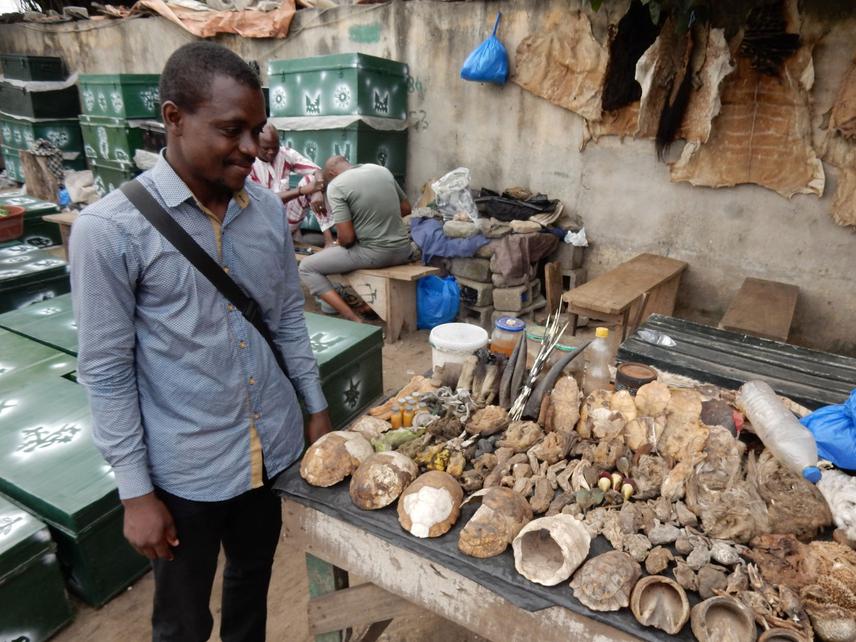Articles featuring the project.
Asso Armel Asso
Vultures provide important ecosystem services by foraging exclusively on carcasses of large mammals and removing them quickly and, therefore, reducing the spread of diseases within ecosystems, giving them the status of good bio-indicators of healthy savannah ecosystems. Once widespread and abundant throughout Africa, vulture populations declined rapidly during the last decades with some populations showing decreases by over 90% within three vulture generations. Specially, these raptors vanished almost completely from towns and all savannah ecosystems and are now at the brink of extinction. Last strongholds are large reserves, but even their vultures of these places are threatened by poaching. The overall goal of this project is to identify and reduce threats pending on vulture taxa in one of their major wild strongholds in West Africa, using a tripartite methodological approach; namely (1) field observations, (2) species movement tracking and (3) ethnozoological surveys. Specifically, it aims at: (i) generating data on vulture populations and habitats’ characteristics in the Comoé National Park, (ii) assessing vultures’ movement inside and outside this park, (iii) evaluating human pressure generated by the demand of vultures in traditional medicine, (iv) determining the socio-economical value of poached vultures and potential international trade affecting the Ivorian bird diversity. The results should help to implement a vulture-conservation-strategy that takes into account vulture populations’ characteristics and movement but also local ethnozoological considerations and cultures.

Observation of a stall in the small market of Koumassi (Ivory Coast), Asso AA, 2021.
Vultures are one of the major actors and driving forces in the ecological balance of savannah ecosystems. Studying these raptors will bring together important ecological (quantitative and qualitative), ethnozoological (socio-economical and ancestral) and conservation data. Indeed, systematic study on vultures is especially missing in Côte d’Ivoire; especially, about the abundance and the distribution of these raptors. In addition, the magnitude and economical importance of poaching and trading of vultures is also missing due to the lack of knowledge about the importance of vultures in local communities that drive this trade.
A tripartite methodological approach will be used, combining:
i. field observations (assessment of the diversity and abundance of vulture’s species in the Comoé National Park and the characteristics of their habitats
ii. vulture species movement tracking (Analyze of the spatio-temporal distribution and the migration of vulture species in the CNP and its surrounding areas
iii. a national ethnozoological surveys (assessment of human pressures through the magnitude of the demand for vultures and/or parts of vultures).
This work will provide national quantitative and qualitative data on the status of the vulture’s species in Côte d'Ivoire on one hand, and assess the patterns and magnitude of human pressures on these raptors on the other hand. These results could then be used for the implementation of a sustainable conservation strategy to save the country’s and West Africa’s vultures. This conservation strategy will take into account specific local cultural attitudes, trade-customs, economical aspects and species-specific threats. State and local authorities (National Office of Reserves and Parks) as well as Nature conservation NGOs and Naturalist clubs in schools will be approached to cooperate in a joint effort project to save critically endangered vulture species from extinction.